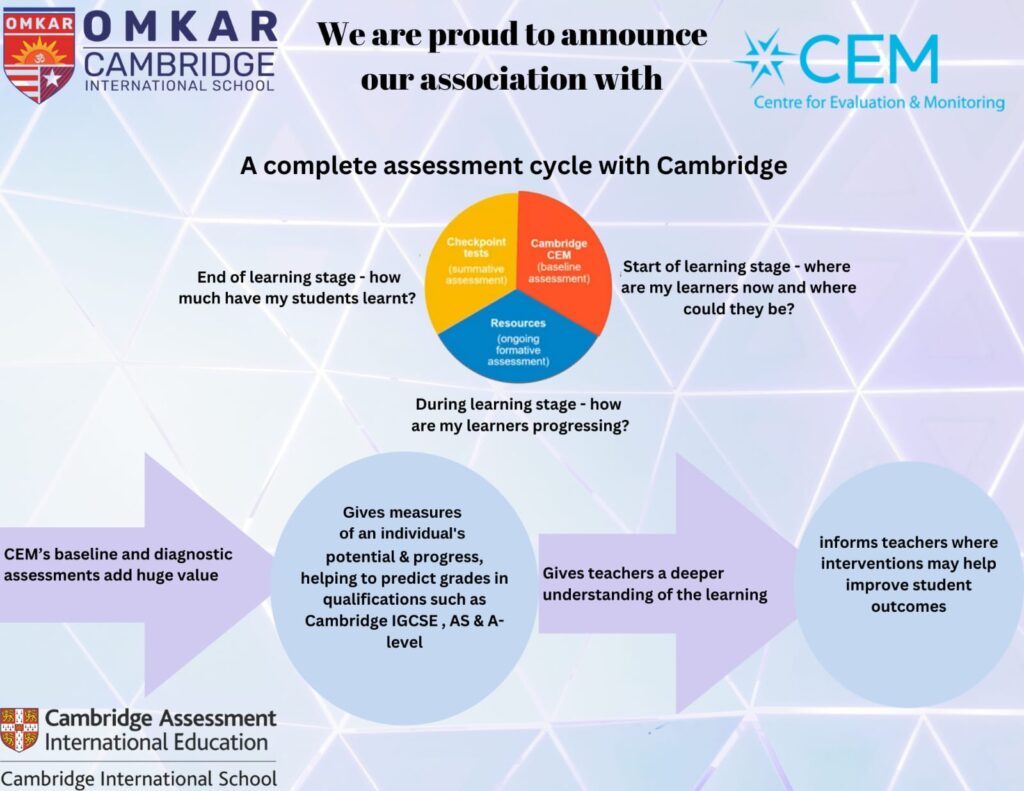
The continuous process of innovation and improvement in our teaching methods has been core of our learning process.
Going with our inherent zeal for excellence, we would like to introduce you to the concept of Cambridge CEM baseline assessments.
CEM assessments provide an objective view of the students’ strengths and abilities in key areas, highlight gaps in knowledge and help us shape our teaching to meet the learning needs. They also support educational tracking, giving us measures of an individual’s potential and progress through school.
The data provided to us by the process enables us to benchmark individual’s performance and understand true potential. This also helps us with predicting grades and setting targets.
Cambridge CEM – the Centre for Evaluation & Monitoring, is one of the largest and longest established research groups, a not-for-profit organisation. CEM has been working with schools & education professionals in 100+ countries for over 37 years.
Cambridge CEM Baseline Assessments support teaching & learning at school, using data as an evidence. It measures student potential and performance at each stage and focusses on the skills of a child. CEM assessments are diagnostic in nature and flags students’ strengths and weaknesses in the core areas of curriculum and thus helps teachers’ to personalize learning.
Some of the key features of the assessment are:
- Computer based – no teacher marking, quick results and easy to administer
- Adaptive – tailored to students’ ability level, engaging, fairer & most accurate indicator of ability
- Skill based – measure skills that has been proven to have biggest impact on their future academic attainments
- Subject predictions for Cambridge iGCSE/Advanced – schools can use this data to help children choose a subject, benchmark at an early stage
As CEM is an assessment for learning, there are no separate books or reading material to refer. Whatever a child has read, learnt, understood so far in their academics or from their interests, is good enough to sit through this assessment. Because of its adaptive nature, no two students will face the same set of questions. The test will adjust the difficulty level as per the child’s ability.

